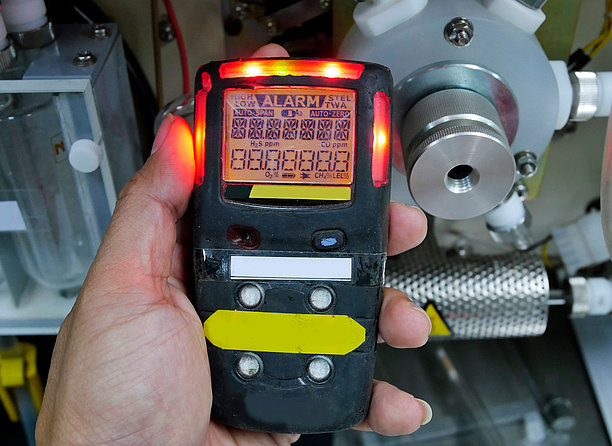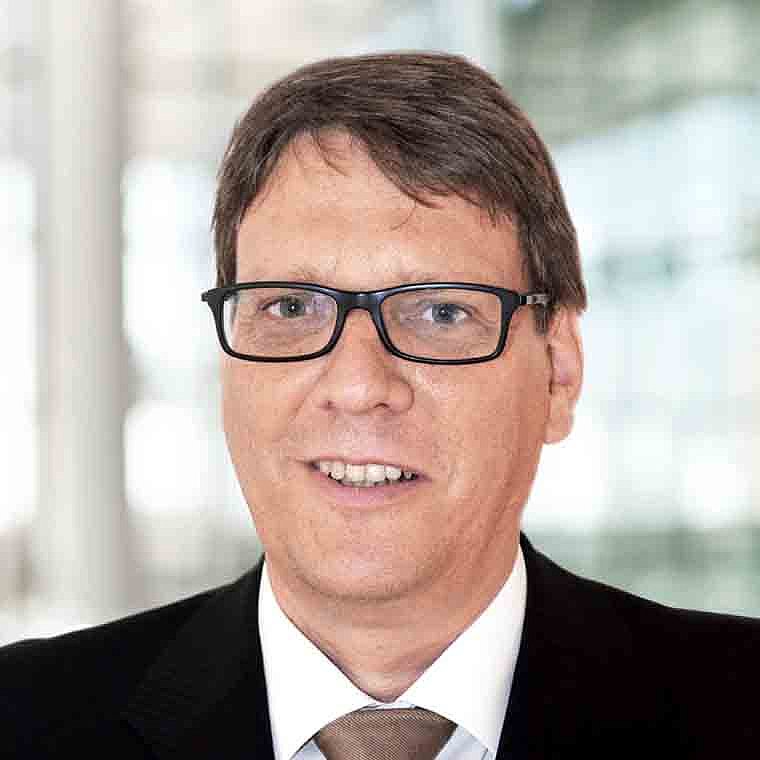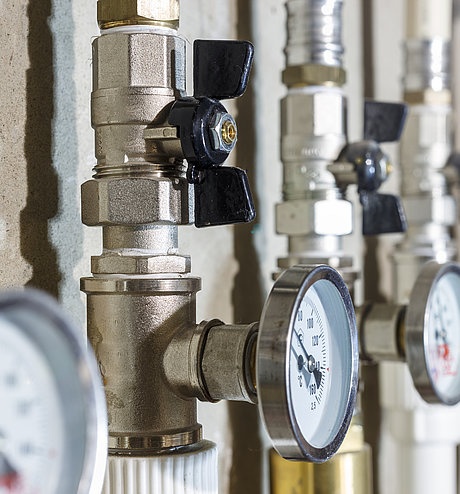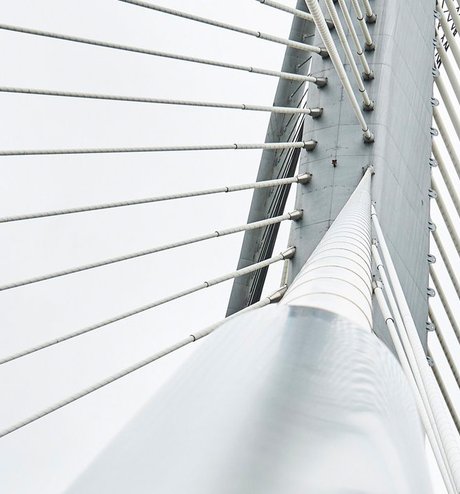Laser absorption spectroscopy - Precision trace gas monitoring
Ref.-No. 6062
Keywords: Laser spectroscopy, Trace gas analysis, Intracavity spectroscopy
In intra-cavity laser absorption spectroscopy (ICLAS), a sample is placed directly in the laser resonator (cavity) instead of sending the emitted laser beam externally through the sample. This increases sensitivity over conventional absorption measurements.
This invention by TU Dortmund takes this sensitive spectroscopic measuring method and gives it a two-mode design, which greatly simplifies the analysis of intra-cavity signals. The sample gas fed into the laser resonator has an absorption line close to one of the resonator modes. Due to mode competition, the absorption affects the relative strength of the two modes: one is attenuated, the other is amplified. The energy transfer between the two resonator modes allows the gas to be detected and its concentration determined with extremely high precision. This means trace gases present in the air, such as methane or CO2, can be detected with great precision in a robust test setup. Reactive and polluting gases that can contribute to the greenhouse effect can also be detected.
Competitive Advantages
- High detection sensitivity
- High spectral resolution of absorption transitions even with isotope mixtures
- Compact, robust gas laser design possible
Commercial Opportunities
TU Dortmund's improved ICLAS technique allows measuring technology to be used in trace gas analytics, industrial process monitoring and safety technology. It could see cost-effective use wherever extremely high detection sensitivity is required.
Current Status
Proof of concept/lab validation are planned, and the appropriate funding has been requested. An application for a patent has been submitted to the German Patent and Trademark Office (DPMA), with subsequent applications in other countries possible in the priority year or as part of a later PCT application. We are offering interested companies the opportunity to license and, especially, continue to develop this technology with the inventors at TU Dortmund.
—
An invention of TU Dortmund



